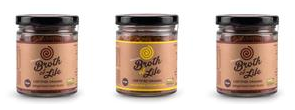Offer
Provide additional details about the offer you're running.
Provide additional details about the offer you're running.
Provide additional details about the offer you're running.

The name FODMAP refers to specific nutrients that are to be avoided under the guidelines of this diet. More specifically, it is an acronym for those nutrients. It stands for;
Fermentable… Meaning they are broken down by bacteria in the large bowel.
Oligosaccharides… Meaning few sugars.
Disaccharides… This is a double sugar molecule.
Monosaccharides… This is a single-sugar molecule.
And
Polyols… These are sugar alcohols.
Catchy, isn’t it?!
This diet is commonly referred to as the Low FODMAPs diet as the afore mentioned nutrients, which all come from the carbohydrate family, are to be consumed less regularly.
People will generally begin a low FODMAPs diet if they suffer from chronic digestive issues, have been diagnosed with Irritable Bowel Syndrome or if they experience symptoms like constipation, diarrhea, gas, excessive burping, abdominal pain and/or bloating.
A number of studies [1] [2] have shown that the low FODMAPs diet offers symptomatic relief for people suffering from Irritable Bowel Syndrome and that the diet leads to a significant improvement in and a better quality of life for the majority of patients.
For many people who have suffered from symptoms for a significant amount of time, with no successful treatment, the low FODMAPs diet comes as a welcome solution.
The nutrients involved in a low FODMAPS diet have already been mentioned, but to most people their scientific names don’t mean that much. If someone told me to lessen my consumption of Fermentable Oligo-, Di-, and Mono-saccharides And Polyols, I’d probably ask what the FODMAP they were on about!
But seriously… In layman’s terms, FODMAPs are carbohydrates that our bodies can’t completely digest. Once these carbohydrates reach the bowel, they are fermented by the bacteria within the bowel. The gas and excess fluid that this process produces causes the unpleasant gastrointestinal symptoms that we’ve already covered.
The list of foods that are have been proven to aggravate this process is extensive as is the list of foods that can keep the symptoms at bay. You can find a full list of low FODMAPs dietary recommendations here.
While it may well be the solution you’ve been searching for, it’s always a good idea to check in with your GP. Your GP can run blood tests to rule out any other gut disorders you might be suffering from and breath tests to assess how effectively your body is absorbing various carbohydrates such as lactose, fructose, mannitol and sorbitol. Once your results are back, your GP might refer you to a specialist or if your results are conclusive she/he may well suggest you try a low FODMAPS diet.
Due to the presence of onion, garlic, celery and pepper – the non-FODMAP friendly ingredients in a standard bone broth - many people on the diet, with reactive bowels, cannot consume it. And given the known healing benefits of bone broth, this is a bit of a bummer. Fortunately though, Broth of Life have enthusiastically come to the FODMAP party with our range of FODMAP friendly bone broths!
Just because you have to adjust your diet, doesn’t mean you have to miss out on the delicious, nutritious goodness of a warm brothee!
Like all of our products, our FODMAP friendly range is certified organic, full to the brim with nutrients, healing qualities and packs a flavourful punch.
If you’re starting a FODMAP journey, we at Broth of Life would be honoured to be a part of it!

Ready to get serious about your health?
Join 30,000 others for free health articles and special offers.
Broth of Life acknowledges Aboriginal and Torres Strait Islander First Nations as the traditional custodians of Australia.We recognise their continuing connection to land, waters and culture. We pay our respects to their Elders past, present and emerging.